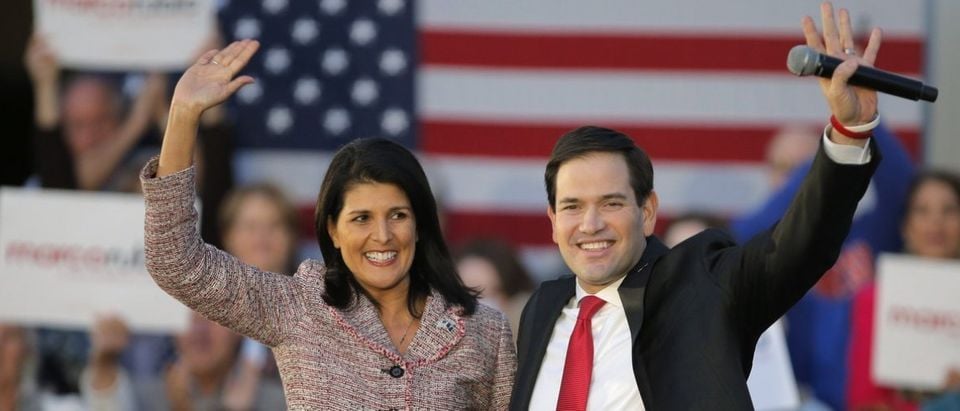Over at the Washington Post, Greg Sargent has a piece up, titled: “The GOP that [crscore]Marco Rubio[/crscore] hopes to lead may not exist.”
Sargent was kind enough to quote me in it, but I think it deserves some elaboration.
By my reading (and you should read his whole piece), Sargent is arguing that—in order to have a shot at the nomination—the base has forced Rubio to campaign in a less optimistic manner. What is more, he has not risen to the occasion by confronting Trump over some of his unseemly statements.
The reason I think this is an important argument is that if Marco Rubio does, in fact, win the nomination, you can be sure that (along with calling him a “robot”) liberals will seek to undermine his appeal by making these exact arguments. They will say that Rubio pushed his optimistic message aside in order to pander to the base’s worst instincts. They will say he abandoned immigration reform. And they will suggest that he did not show political courage by standing up to Donald Trump when he said outrageous things (and is thus complicit in Trump’s sins).
They will do this because Rubio (as a young, eloquent, charismatic, Hispanic conservative) poses a serous threat to liberalism.
The good news for Rubio is that it will be easier for him to run as an optimistic General Election candidate than it was for him to run as an angry primary candidate. Most politicians have a natural disposition, and Rubio is naturally optimistic.
But the best politicians (see Reagan and Clinton) channel both optimism and indignation, and running in this milieu has required Rubio to demonstrate a healthy dose of indignation. Has he pulled it off? I don’t think Rubio has betrayed his positive image, or that his recent comments constitute overt pandering or a dumbing down of his message (I suspect some observers will differ with me on this).
Now, a few words regarding the specific suggestion that “The GOP Marco Rubio hopes to lead may not exist.” Good leaders don’t just reflect–or even merely represent—their base (especially not their worst instincts). Instead, they lead them to follow their better angels. This is why I prefer Edmund Burke’s philosophy of leadership to the more populist and parochial “delegate” model of representation.
Restoring hope and optimism in America would be a long-term project. Leadership is required. You can’t tell Americans to be more optimistic. You have to foster a reality where optimism is the natural byproduct. This is no small feat. We didn’t get in this mess over night and we won’t get out of it over night either.
Good leaders don’t unilaterally act without the public’s consent. Instead, they teach and inspire—and bring the public along with them. The first step is to gain the trust of Americans. He can begin this work by making sure they know he feels their anger and pain. But instead of helping them wallow in it, or stoking resentment or bitterness, he can then pivot and redirect that passion in a more positive way. This is why words matter. This is why Rubio’s embodiment of the American Dream, coupled with his ability to speak eloquently about it isn’t just rhetoric—it means he has the tools to potentially inspire and lead. This is why he could potentially be a transformational political figure.


